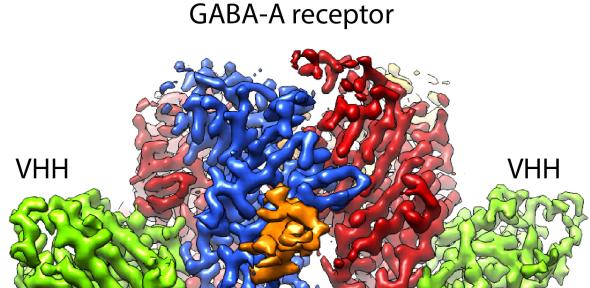
Submitted by D.P. Juan on Tue, 28/01/2025 - 14:02
Cambridge researchers, led by Paul Miller and Laura Itzhaki, have launched the "MAST: Modular Activator and Silencer Therapeutics" project, developing therapeutic protein platforms to combat disease. Funding has also been secured to establish a facility for screening protein binder libraries, enhancing research capabilities. This initiative aims to propel cutting-edge biomedical research and offer accessible, high-quality resources to the University.
In 2024, following initial discussions at the School of Biological Sciences Molecules and Cells Theme Annual Day, Dr Paul Miller and Professor Laura Itzhaki led an interdisciplinary team of researchers, including Cathy Wilson and Mark Howarth (Pharmacology), Florian Hollfelder (Biochemistry), and Pietro Sormanni (Chemistry) to develop the “MAST: Modular Activator and Silencer Therapeutics” project. This project has now been funded through the UKRI Engineering Biology Mission Awards.
The project brings together scientists with experience in structural biology, protein engineering and evolution, artificial intelligence, and drug screening to develop three therapeutic protein platforms. One platform utilises antibodies designed to stabilise target protein conformations to control cell signalling in disease. The other two platforms involve degrader and protease arrays that target harmful disease-causing proteins for degradation or digestion.
To synergise with the MAST programme, Professor Itzhaki and Dr Miller, together with Marko Hyvonen (Biochemistry), also led a successful application for a Cambridge Isaac Newton Trust Strategic Award. The aim was to establish the Cambridge Protein-Library Screening Facility (CamPSF). The facility will enable screening protein binder libraries, such as antibody libraries or those developed under MAST, against antigens provided by interested labs from across the whole biomedical community at the University to create valuable research tools and potential commercial biologics. The leads anticipate binders produced from this facility can be used to track or modulate proteins in physiology and pathology, to facilitate high-resolution structure determination of protein targets, as therapeutics and diagnostics, and in biosensors, microfluidics, and super-resolution microscopy.
This in-house facility can run screening independently or collaborate with labs to train graduate students and postdocs to accelerate their research and provide key career training. The libraries will be accessible to anyone in the University at not-for-profit rates and will be free of any IP constraints for open-access publication of protein sequences. This aims to ensure freedom to exploit commercial development. Access to unique binders in-house will give Cambridge a competitive advantage in pursuing cutting-edge research at the highest international levels of excellence.
These synthetic libraries have several advantages over conventional approaches relying on in vivo discovery. They have faster development times by replacing animal immunisation. They also reduce the use of animals in research and allow screening of toxic and non-immunogenic targets in vitro. Lastly, the facility will use cutting-edge in silico techniques developed in Cambridge to mine the data obtained from the library selection to predict key properties. These include properties such as immunogenicity, stability, and solubility.
